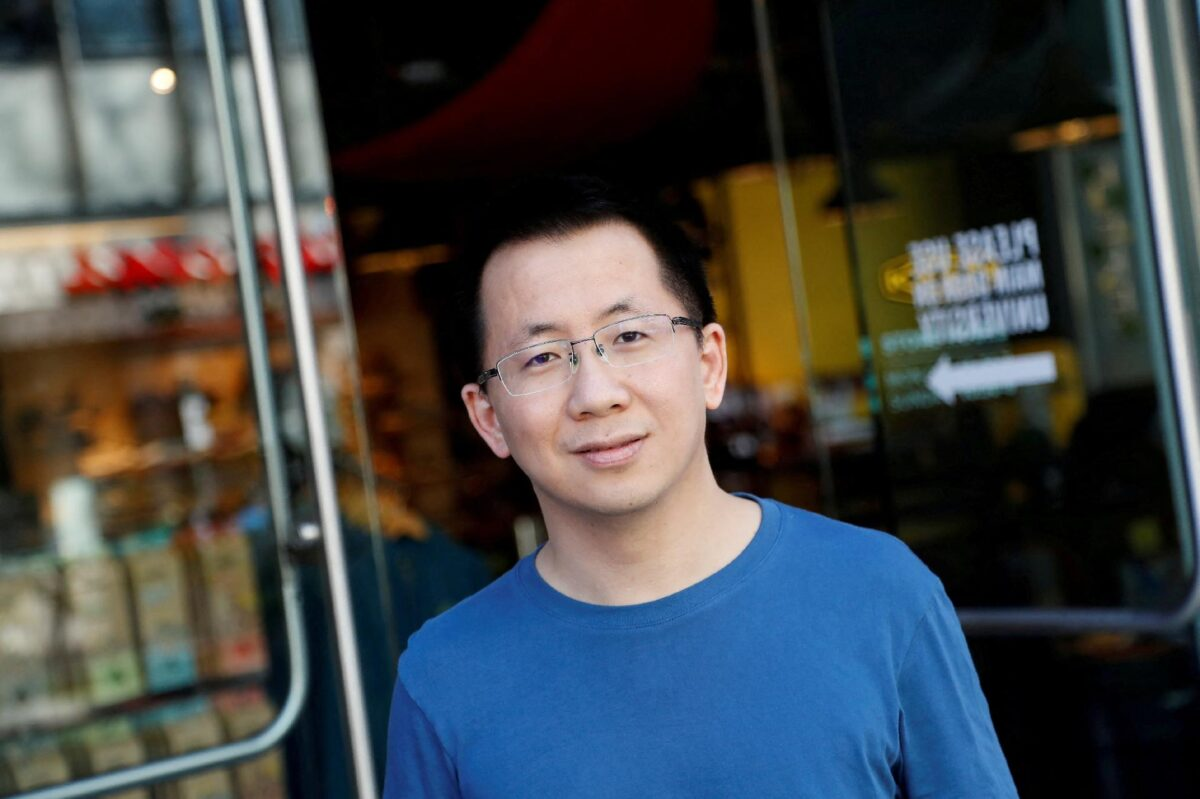The Hurun China Rich List for 2023 has crowned Zhang Yiming, the founder of ByteDance, as the wealthiest person in China. With an impressive net worth of $49.3 billion, Zhang’s wealth highlights not only his success as the creator of TikTok but also his significant influence on the global tech landscape.
As China faces economic challenges, Zhang’s ascent to the top spot reflects his resilience and ByteDance’s rapid growth, placing him among China’s most influential business leaders.
ByteDance’s Unstoppable Growth
ByteDance, best known as the parent company of TikTok, experienced remarkable growth in 2023, reaching a staggering $110 billion in global revenue—a 30% increase from the previous year.
This tremendous financial leap played a substantial role in Zhang Yiming’s ascent to the top of China’s rich list. Even after stepping down as CEO in 2021, Zhang continues to benefit from ByteDance’s robust performance in the tech world.
Read : Mukesh Ambani Becomes Richest Man of India, Surpassing Gautam Adani\
TikTok, the company’s flagship product, has had an unparalleled impact on social media and the digital entertainment industry. The platform has amassed billions of users worldwide, especially among younger generations, which has driven ByteDance’s expansion into various sectors, including e-commerce, gaming, and cloud services.
The success of ByteDance and TikTok has not been without challenges. The company has faced regulatory scrutiny in several countries, especially in the U.S., where concerns over data privacy and national security led to investigations and legal battles.
Read : Fortunes Across Generations: The World’s Richest Families in 2024
Nevertheless, ByteDance has managed to sustain its growth despite these obstacles, establishing itself as a global leader in digital content and technology. For Zhang, this growth reflects his strategic foresight in founding ByteDance with a vision to revolutionize content consumption through artificial intelligence.
Shifts in China’s Rich List and Economic Landscape
Zhang Yiming’s rise to the top marks a historic shift in China’s wealth landscape. For the first time in 26 years, a billionaire born in the 1980s has claimed the number one position on the Hurun China Rich List. His rise coincides with a notable drop in the number of billionaires in China, from 895 last year to 753 in 2023.
The combined wealth of Chinese billionaires has decreased by 10%, totaling $3 trillion, reflecting a broader economic trend that has affected various industries across the country.
Industries such as solar energy, lithium batteries, and electric vehicles (EVs) have faced increased competition and a growing risk of tariffs, leading to heightened uncertainty for many Chinese companies.
Among the other top billionaires in China, bottled water magnate Zhong Shanshan, who owns Nongfu Spring, slipped to the second position with a net worth of $47.9 billion, a 24% decline.

Zhong’s fall in rankings highlights the volatility of certain consumer markets. In early 2023, Nongfu Spring faced backlash over bottle designs, which critics argued were insufficiently patriotic. The controversy negatively impacted Zhong’s reputation and finances, underscoring the impact of public sentiment and brand perception on personal wealth in China.
The rich list also includes prominent figures like Tencent’s Ma Huateng ($44.4 billion), Pinduoduo’s Huang Zheng ($34.5 billion), and He Xiangjian of Midea ($33.1 billion). Each of these leaders has navigated their respective industries’ complexities, with varying levels of success.
The pressures facing China’s tech sector, particularly concerning data regulation, market saturation, and international trade restrictions, have impacted these billionaires’ fortunes, highlighting the unique challenges China’s wealthiest individuals must overcome to retain their positions.
Challenges Facing China’s Billionaires
While Zhang Yiming’s rise showcases ByteDance’s success story, the broader economic environment in China presents significant hurdles for the nation’s billionaires. Increased competition in sectors such as solar panels, electric vehicles, and lithium batteries has led to a supply glut, further compounded by the looming threat of international tariffs.
Rupert Hoogewerf, Chairman of the Hurun Report, commented that Chinese businesses, particularly those in green technology and EV manufacturing, face an intensely competitive environment that has made it challenging for entrepreneurs to maintain growth.

These challenges are not limited to industrial competition. Chinese billionaires have faced ongoing scrutiny from government regulators in recent years. Several prominent entrepreneurs have experienced significant financial setbacks as the government has intensified its regulatory measures, particularly in the technology and finance sectors.
Jack Ma, the founder of Alibaba, is a prime example, falling to tenth place on the list with a net worth of $23.2 billion. Ma’s drop in rankings follows the Chinese government’s crackdown on Alibaba and Ant Group, which impacted the company’s valuation and Ma’s wealth.
This wave of regulation has prompted many Chinese entrepreneurs to adopt more cautious business strategies, particularly as Beijing aims to increase oversight of the tech industry.
With the state emphasizing sustainable growth and curbing monopolistic practices, the traditional paths to amassing wealth have become more complex. Zhang Yiming’s fortune growth, therefore, is even more notable as it reflects ByteDance’s ability to navigate these regulatory shifts successfully.

